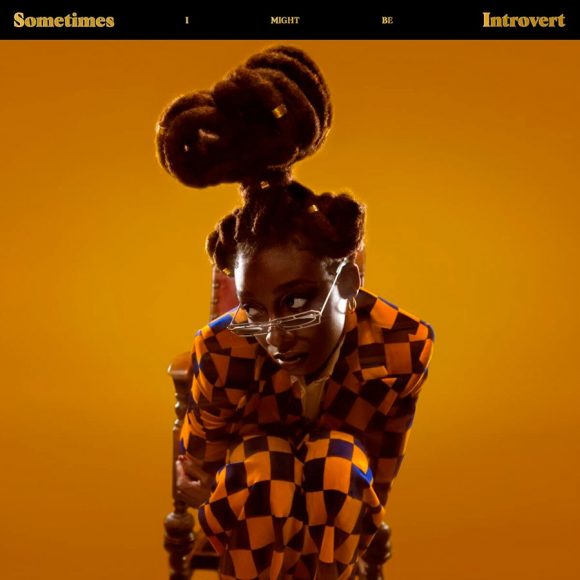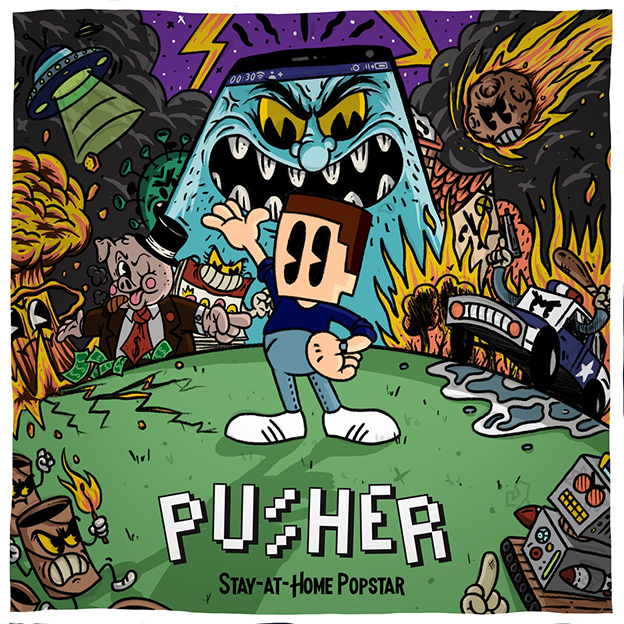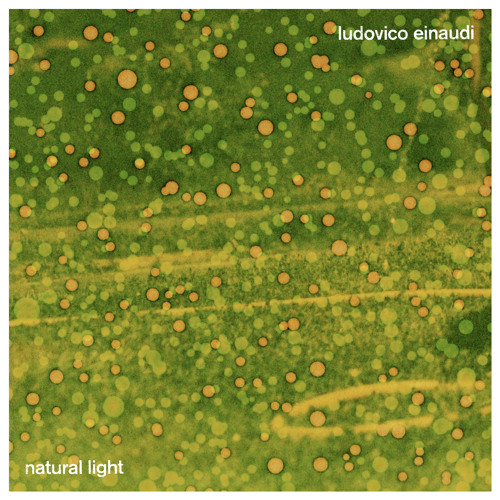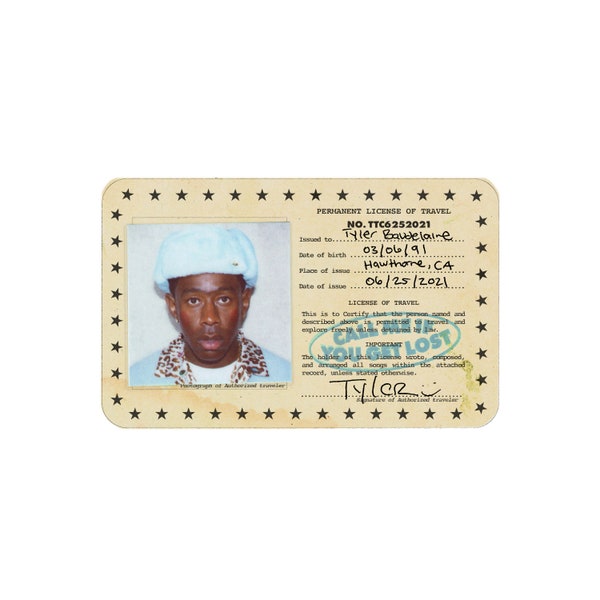
Graphic by Ben Berman
In 2021, music encircled our lives with a sense of excitement. Artists released projects showcasing a sense of reinvention, which was fitting after a year of isolation. Old favorites and new artists alike took advantage of a music industry more internet-centered than ever. Live music returned to (almost) full force.
In turn, many of the albums released this year reflect this period of time. From reflections on growth to expressions of confusion to celebrations of life, the albums of 2021 put a mirror up to what many of us are thinking and feeling after nearly two years of pandemic life.
To cap off 2021, the CU Independent’s arts and entertainment section curated a selection of six exceptional musical works that spoke to us this year. The full playlist with 30 songs can be found here.
“Sometimes I Might Be Introvert” — Little Simz

Little Simz’s “Sometimes I Might Be Introvert” (Courtesy of Age 101 Music and AWAL)
Little Simz oozes self-confidence.
“Honestly, respectfully, I think I’m very, very talented,” she told an interviewer for the Evening Standard earlier this year.
And she is — without a doubt. The 27-year-old British-Nigerian rapper Simbiatu Ajikawo, known as Little Simz, is shaking up the rap scene with her fierce, introspective lyrics and experimental, genre-melding beats. She has been praised by her idols, Kendrick Lamar and Lauryn Hill, who she toured with in 2017, and her last album “Grey Area” won NME’s Best British Album Award last year.
Her fourth studio album, “Sometimes I Might Be Introvert,” with producer Inflo, is a sweeping masterpiece that explores the divide between her public persona and private self, healing from childhood trauma and the search for female empowerment. On the lush, cinematic opening track, “Introvert,” Little Simz reflects on the chaos, violence and pain in the world around her, before shifting focus to her own inner turmoil of whether she is “Simz the artist or Simbi the person.”
Next comes the anthem “Woman” with R&B singer Cleo Sol, a call for Black women to rise up and support each other.
The standout track is “I Love You, I Hate You,” a heartbreaking tribute to her absent father. Over the rich orchestral texture and hypnotic choral refrain of the title, she demands, “Is you a sperm donor or a dad to me?”
With “Standing Ovation,” she voices her fears, questioning her own need for fame in “Why the desperate need for applause?”, in the end, she reconnects with her infectious self-confidence.
She concludes, “I got royalty in my blood, I was born great / Don’t allow anyone to undermine your fate.” Over 10 years into a rapidly rising career, she certainly has proven this greatness — and has finally cemented her legacy as one of the greatest British rappers of all time.
Izzy Fincher — Arts Editor
“Stay-at-Home Popstar” — Pusher

Pusher’s “Stay-at-Home Popstar” (Courtesy of Pusher International)
“Stay-at-Home Popstar” is a fitting title for Pusher’s debut album. After all, the Canadian musician spent most of the pandemic pressed up against his green screen making videos for his social media platforms, concocting catchy jingles in his bedroom. These served as educational, catchy rants on everything from climate change to race to consumerism.
That blend of comedy and activism is present on “Stay-at-Home Popstar,” a collection of ultra-aware songs that blend the hyper-pop of 100 Gecs and the retro saxophone riffs of Capital Cities while employing the tongue-in-cheek comedy pop of Bo Burnham’s “Inside.”
In a tight 11 songs, Pusher manages to pinpoint his views on the worsening climate crisis and class difference, firmly pointing fingers at those who continue to raze the environment for a quick profit.
“Shame on you / Acting like you didn’t know the thing to do / But you’ve known the score since 1982,” he sings in a critique on the uber-rich in “Too Late.”
On other tracks, he laments forthcoming disasters due to the selfishness of a few dozen billionaires. Lines like “I don’t wanna stay inside all day / Cause you need a mask just to breathe the air” feel all too looming, given recent ideas on how climate issues may exacerbate in the next century.
While other artistic works delving into environmentalism typically preach individual responsibility, Pusher sees through the lies of those who have told him his small actions can matter as much as systemic change. “Shame on me / Thinking that I could fix things with the bags I save / Turn off the tap and the lights and live the same old way,” he sings on “Too Late.”
This album is a product deeply entrenched in a sense of meaninglessness, something Pusher himself describes as an “album to enjoy the collapse of civilization to” on his viral TikTok channel.
“Now I see the reason we’re destroying our society / So Jeff and Bill and Mark can have enough money / That when it falls apart they will be safe from me,” Pusher sings. The product, jumping wildly between its danceable melodies and nihilistic lyricism, perfectly mirrors the feeling of putting off the inevitable.
Ben Berman — Arts Editor
“Natural Light” — Ludovico Einaudi

Ludovico Einaudi’s “Natural Light” (Courtesy of Universal Music Group)
Italian composer Ludovico Einaudi recently released his new single “Natural Light” on Oct. 28, boasting over two million plays on Spotify since. As one of the most-streamed contemporary classical artists of all time, it is no surprise that this song quickly gained popularity within just two short months.
Einaudi has created a beautiful culmination of colorful chords, which weave in and out with each other, contrasting harmoniously. One can imagine the late evening light filtering into a quaint and cozy room, reflecting the broken faded chords played on the piano.
This song has been a companion to many individuals seeking a peaceful and quiet refuge from the hectic surroundings of the world, offering a realm of escapism from our pandemic-focused society. For individuals seeking a stunning piece of music to soothe the soul, “Natural Light” is just that.
Haley Lauritzen — Staff Writer
“Easy On Me” — Adele

Adele’s “Easy on Me” (Courtesy of Columbia Records)
Adele’s “Easy On Me” is a welcome home anthem. After a long six-year hiatus, Adele released the single on Oct. 15, before the debut of her fourth studio album “30″ on Nov. 19, which explores her divorce from her husband Simon Konecki in 2019.
The song is a plea to go easy on her, likely intended for Konecki. It is also a tribute to her supporters, an explanation for her long hiatus. Reflecting on her youth, she sings “I had good intentions / And I had these hopes / But I know it now / It probably hasn’t even shown.”
These intimate details welcome the listeners into her thought process and her inner feelings. The listener can almost feel her heartbeat with the soft piano keys, a comforting sound. She explains that she lost herself, but the single release is proof she is en route to the power that she still has. All aboard for an emotional, authentic journey.
Chloe Wasserstrom — Staff Writer
“CALL ME IF YOU GET LOST” — Tyler, The Creator

Tyler, The Creator’s “CALL ME IF YOU GET LOST” (Courtesy of Columbia Records)
Rapper, writer and producer Tyler, The Creator released his most recent album, “CALL ME IF YOU GET LOST,” on June 17, featuring artists like Lil Wayne, Pharell Williams and Brent Faiyaz. Like his previous works, “CMIYGL” is a creative and cohesive album, where imaginary worlds and personas come to life.
Within “CMIYGL,” Tyler develops the persona of Tyler Baudelaire, a luxurious traveler, which is a sharp contrast from his “IGOR” persona, an angsty personality created in his 2019 album. The mixtape follows Baudelaire’s travels, where he acquires worldly possessions and experiences profound revelations.
Though his extravagant lifestyle might seem happy, the darker themes of songs like “Massa” explore his pain and tragic loss, caused in part by the secrecy of his life. With the beautiful production and lyrics of “CMIYGL,” Tyler’s artistry has truly matured — it’s certainly his best album to date.
Courtney Brown — Staff Writer
“Nowhere Generation” — Rise Against

Rise Against’s “Nowhere Generation” (Courtesy of Loma Vista Recordings)
“Nowhere Generation,” released June 4, is punk band Rise Against’s ninth studio album. The album perfectly captures the worldwide social, political and economic uncertainly many faced in 2021. Unlike their previous albums, which have often been unrefined as a whole with a few standout tracks, “Nowhere Generation” is consistently great.
The opening track, “The Numbers,” is a rallying cry for those fed up with the status quo. “They break us like horses / How long will we drag their plow?” lead singer Tim McIlrath asks, critiquing the failures of the American labor market. “Talking to Ourselves” expresses the frustration of those who have fought for change but have been outright ignored.
Lines like “I never wanted to disturb the peace / But it feels like no one’s listening” bring to mind the protests against police brutality that have been front and center for decades. The title track, “Nowhere Generation,” encapsulates the anger and betrayal felt by many young people. McIlrath sings, “And this place used to be somewhere / But they sold it out from under us / Our voices all ignored. Each song is timely and relevant, offering a brief moment of catharsis from one’s chaotic life.
Alexander Edwards — Staff Writer
